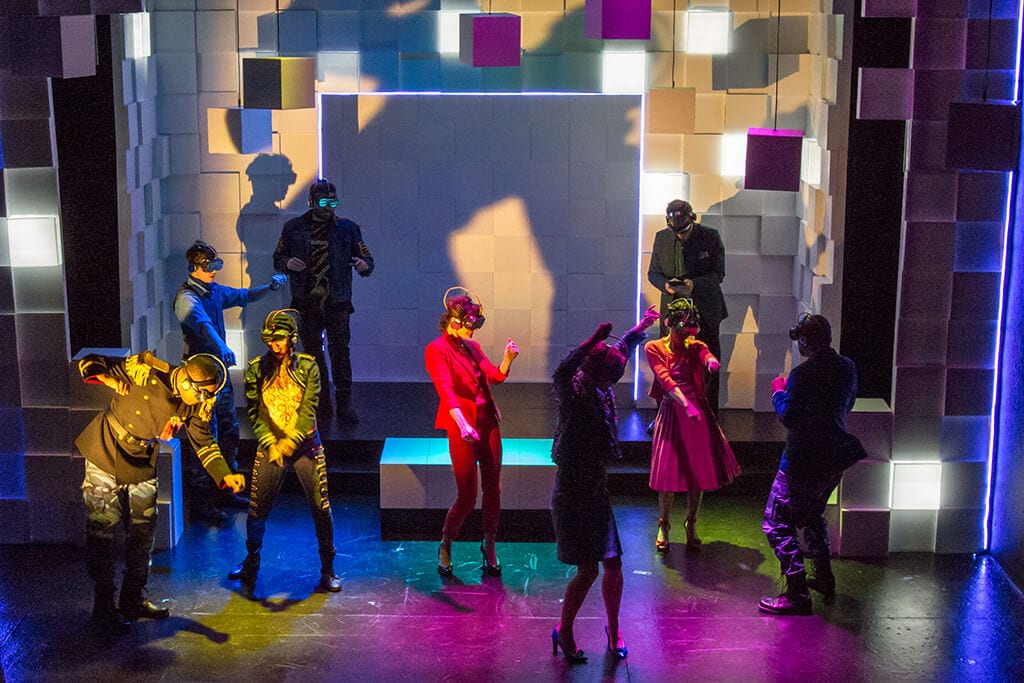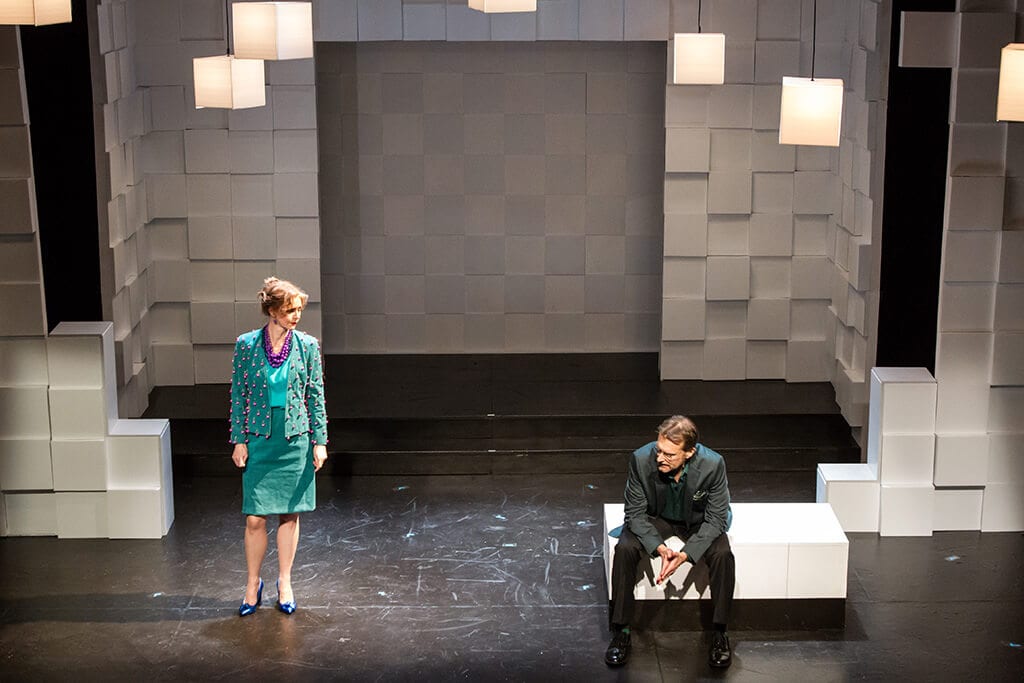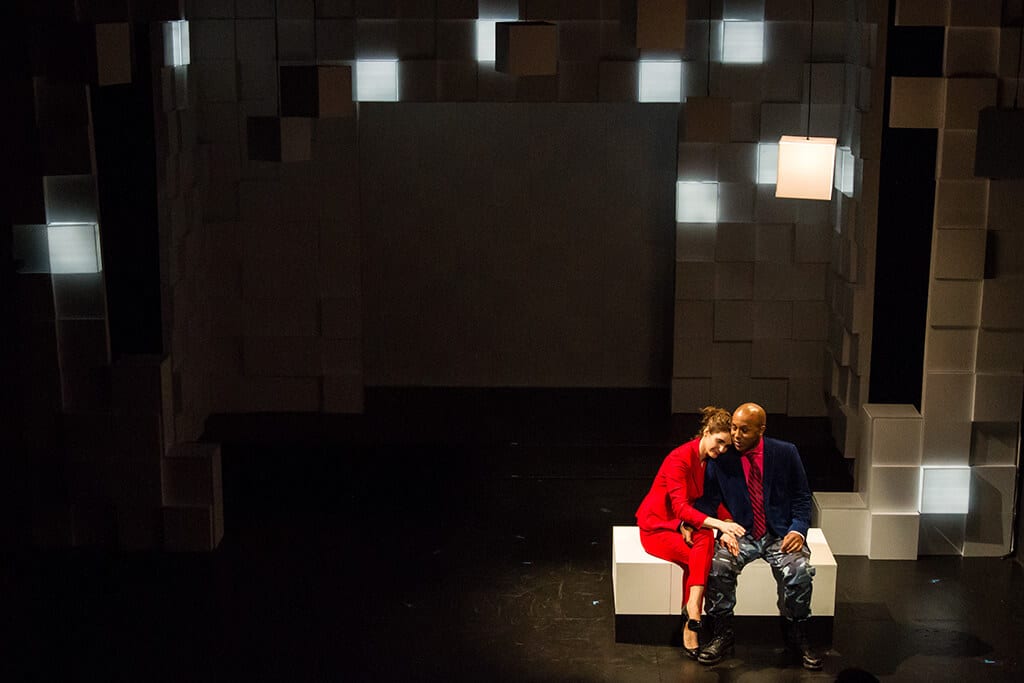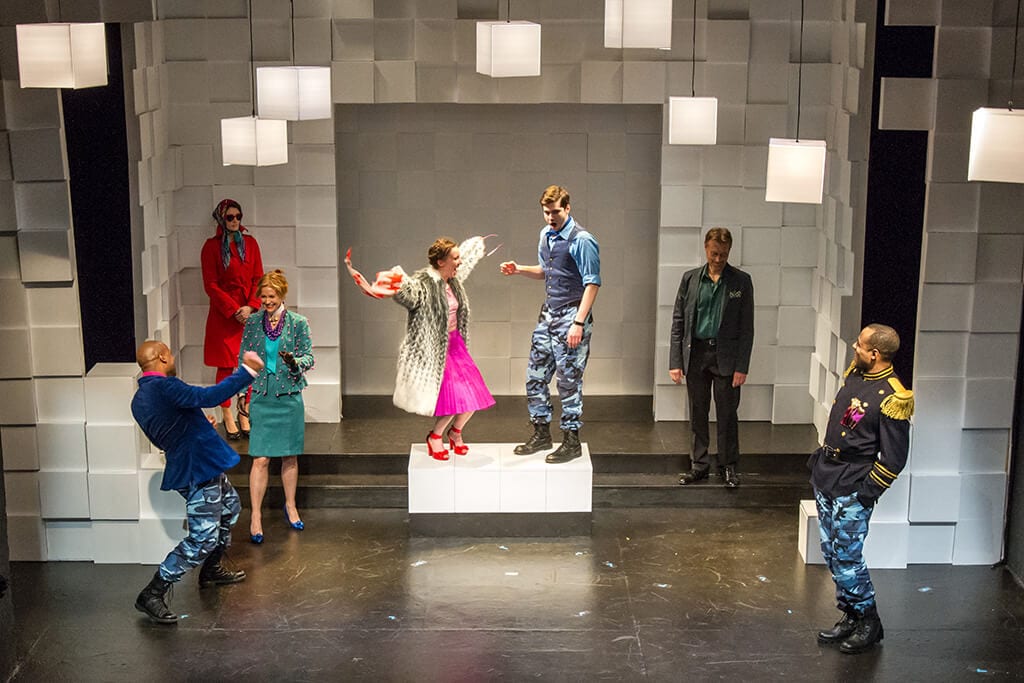For the first few minutes of Ross Williams’ adaptation of Much Ado About Nothing – a play known for its witty repartee and rampant rumor-mongering – no one speaks. Leading lady Hero and her aunt Antonia (originally uncle Antonio, per Shakespeare) lean idly against the walls, absorbed in their smartphones. Leonato, the patriarch, sits in the middle of the stage, fiddling with what looks like a virtual reality headset, before he jams it over his head and enters a world into which the audience can’t follow. It’s a slightly campy metaphor, though one unsettlingly close to home, and it features in nearly every scene of the production – technology and fake news go hand in hand.
It’s only when their smartphones alert them of the news that Don Pedro and his soldiers are coming to town that Leonato and his family spring into action, igniting the fuse of the endless chattering and bantering that so characterize this play. While the constant presence of technology thrusts the audience into a decidedly modern world – my favorite examples being a dubstep wedding and the virtual reality/silent disco which replaces the masquerade ball – it’s still the characters who cause all the real mischief and misinformation.
Shakespeare’s timeless, not-quite-star-crossed lovers et al. are brought to life with electricity. Across the board, the cast shares an admiral devotion to their roles not just vocally, but physically; particularly a lovelorn Claudio (Cory O’Brien-Pniewski) and the dastardly Don John, who Sam Leichter plays like a petulant child. And speaking of campy, Benedick (Devin Haqq) is nothing short of delightful as he rolls and jumps around the stage, trying to eavesdrop on a conversation that’s in fact being spoon-fed to him by his conniving companions. And Beatrice (Carey Van Driest) is all the more delightful, because she does the same in heels.
Much Ado’s cast comes straight from the New York Shakespeare Exchange’s January pub crawl, and with them they bring the charming, emphatic, and updated command of Shakespeare’s language which characterizes ShakesBeer performances. “Seek not to alter me,” demands Don John; not in lofty, dignified tones, however, but instead by Leichter lying flat on his back, having just thrown himself to the ground in a temper tantrum. Piece by piece and scene by scene, the language of Much Ado About Nothing is revealed to be, not a strange, forgotten tongue, but palpable thoughts and emotions.
Set against a blocky white background and flashing neon lights, with a cast that pops in technicolor outfits, (Hero in pink, Beatrice in orange, for two) and satisfyingly petty wordplay, Much Ado About Nothing is an endearing performance. Under the direction of Ross Williams, this production bears the trademark value of the New York Shakespeare Exchange: its undeniable freshness. And in the talented hands of the actors, well-worn relationships like Beatrice’s and Benedick’s – the “they think they hate each other, but they really love each other” trope – spark anew.





